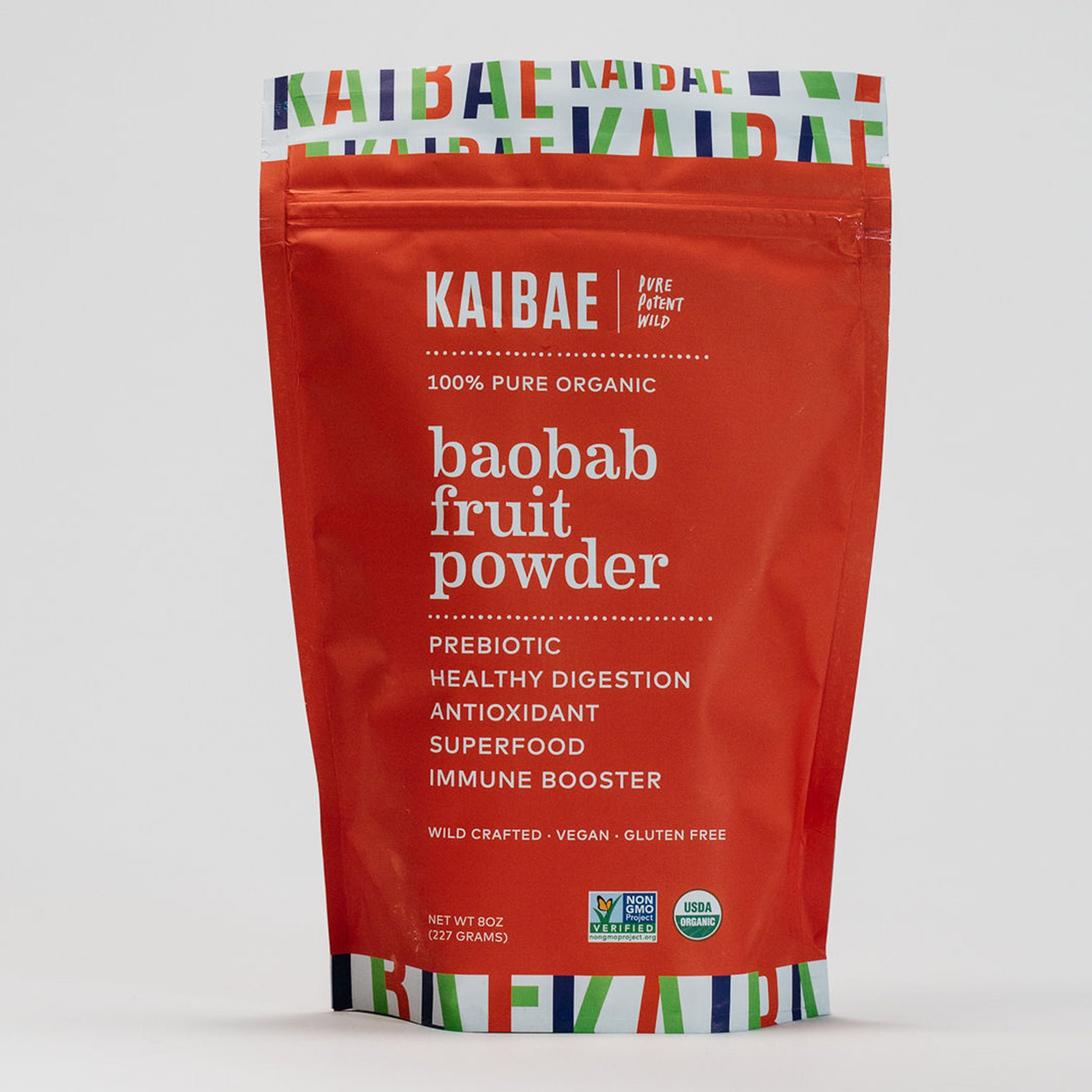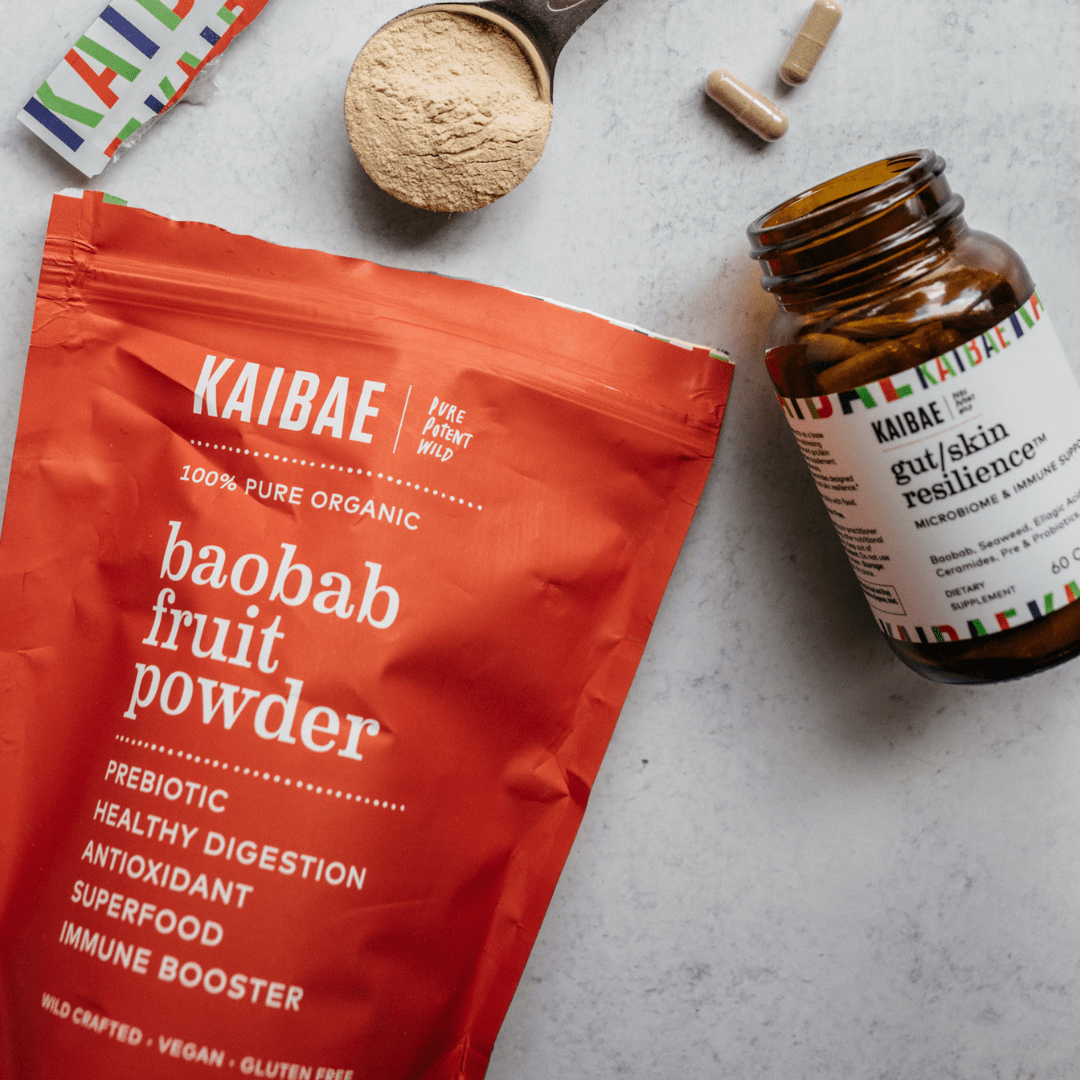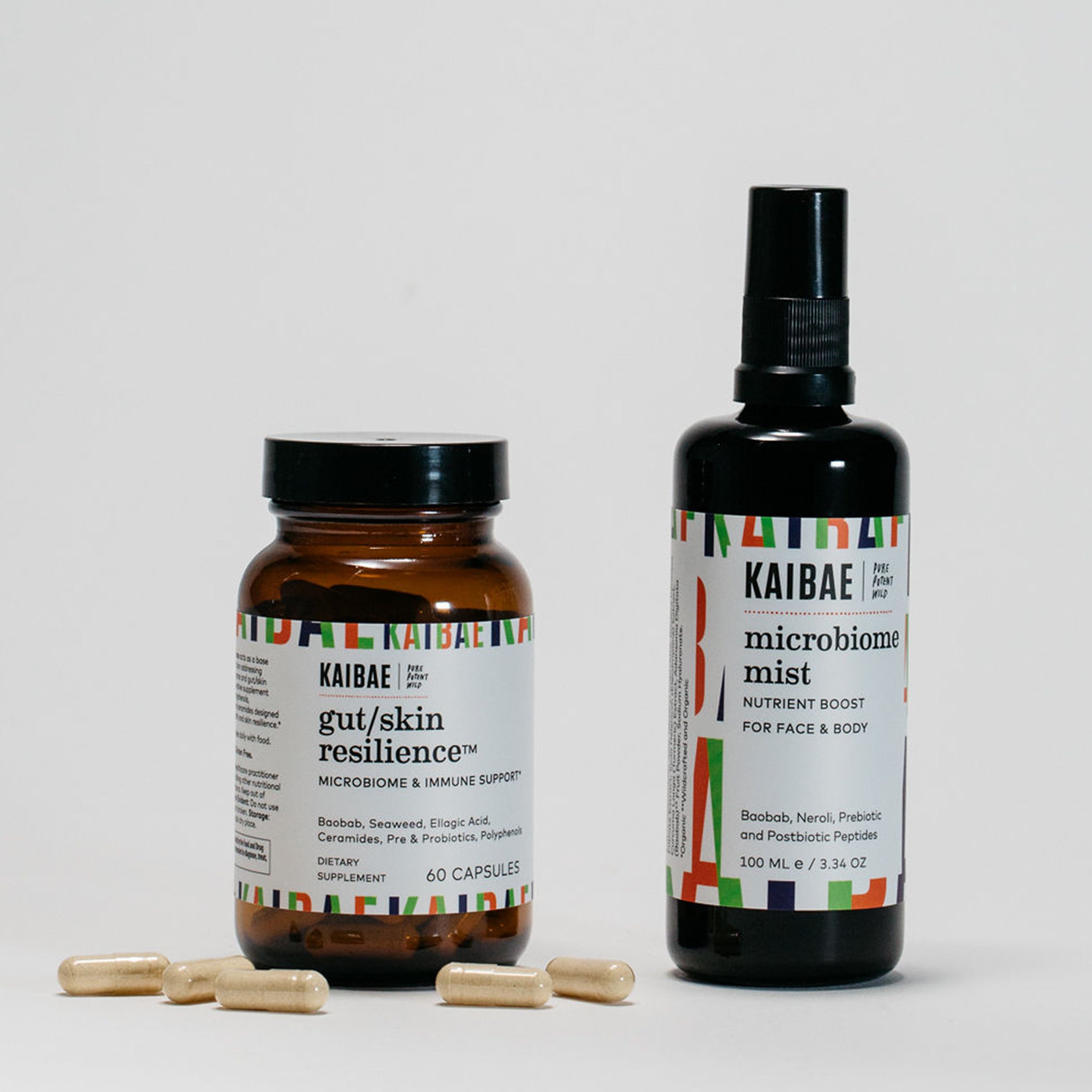Sync Your Gut Clock with Baobab Fiber

Your body runs on time — from your heartbeat to your digestion. But when travel, time changes, or late nights throw your circadian rhythm off, your gut feels it first. Fatigue, cravings, bloating, and blood-sugar swings all trace back to one thing: rhythm disruption. That’s where Baobab fiber steps in. This prebiotic powerhouse supports microbial balance, fuels short-chain fatty acid (SCFA) production, and helps your gut stay in sync when your schedule isn’t.
Learn how chrononutrition — the science of eating in sync with your body’s clock — and gentle, pectin-rich Baobab can restore metabolic rhythm, enhance gut-brain communication, and boost energy naturally. Time is medicine. Discover how Baobab fiber helps you reset your gut clock and thrive through every time change, travel, or season.
How Circadian Rhythms, Intermittent Fasting, and Your Gut Microbiome Sync for Optimal Health
We live in a world governed by time — sunrise and sunset, sleep and wake cycles, work hours and meal times. But beyond our clocks lies a deeper biological timer: the circadian rhythm, an internal system that influences nearly every aspect of human health. Chronobiologists like Dr. Emily Manoogian are making it clear that when you eat may be just as important as what you eat — especially when considering the gut microbiome and seasonal or clock-based time changes.
As intermittent fasting and metabolic health trends grow, chronobiology offers a powerful, science-driven lens for understanding why these strategies work — and how to optimize them for real, sustainable wellness.
The Circadian Clock: Your Body’s Master Timekeeper
Inside your brain sits a tiny cluster of neurons called the suprachiasmatic nucleus (SCN) — your master circadian clock. This clock regulates:
- Sleep-wake cycles
- Hormones such as melatonin and cortisol
- Digestive enzyme production
- Body temperature
- Immune function
- Metabolism and appetite
But here’s the twist: your gut has its own clock, too. And it talks to your brain’s clock constantly. Light is the major synchronizer for your brain clock; food is the major synchronizer for your gut clock. When they align — your body runs like a symphony. When they don’t — think jet lag, sluggish digestion, mood swings, cravings, and metabolic slowdown.
Meet the Microbiome: Your Rhythmic Internal Ecosystem
The gut microbiome — trillions of bacteria and microbes inside your digestive system — follows a 24-hour rhythm. These microbes:
- Shift in composition throughout the day
- Signal to the brain
- Influence metabolism and inflammation
- Regulate immune function and gut barrier integrity
- Affect appetite, energy, and mood
Studies show that gut bacteria change based on our eating patterns. When we eat late at night or graze continuously, the microbiome becomes disrupted — which can lead to insulin resistance, digestive imbalance, poor sleep, and inflammation. Consistent meal timing supports microbial rhythm and metabolic flexibility.
Intermittent Fasting & Time-Restricted Eating: Why Timing Matters
Intermittent fasting (IF) and time-restricted eating (TRE) align eating patterns with natural circadian rhythms. Instead of focusing only on calories, they emphasize when to eat to optimize insulin sensitivity, metabolism, and gut microbial balance.
Research suggests earlier eating windows (8am–4pm or 10am–6pm) support better glucose control and digestion, since our bodies are primed for metabolic activity during daylight hours.
✅ Reduced inflammation
✅ Improved digestion
✅ Balanced hunger hormones
✅ Better sleep
✅ Increased fat oxidation
✅ Stronger gut barrier function
Fasting isn’t just about restriction — it’s a rest period that allows the gut and immune system to repair.
Time Change, Jet Lag & Social Jet Lag: Rhythm Disruptors
When clocks move for daylight savings or when we travel across time zones, our internal clocks struggle to adjust. This “time shock” can cause fatigue, cravings, and digestive imbalance — and the gut microbiome feels it too. Even one night of circadian disruption can shift microbial composition and glucose metabolism.
How Baobab Fiber Helps Regulate the Gut Microbiome During Time Change
Baobab fiber is a powerful ally during these rhythm disruptions. It helps restore microbial consistency, stabilize blood sugar, and support the gut-brain connection through its unique nutrient profile.
Why Baobab Fiber Is Ideal for Circadian Gut Support
- Rich in Prebiotic Soluble Fiber: Baobab pulp contains ~50% soluble fiber, feeding beneficial microbes like Akkermansia and Bifidobacterium that support mucosal health and metabolic balance.
- Gentle, Slow-Fermenting Fiber: Baobab’s gradual fermentation steadies the gut ecosystem when circadian rhythms shift.
- Boosts SCFAs — Especially Butyrate: SCFAs feed colon cells, reduce inflammation, and signal clock gene regulation and sleep quality.
-
Supports Blood Sugar Rhythms: Baobab’s viscous fiber slows digestion and stabilizes glucose, easing metabolic strain when sleep and meals are off schedule.
Meal-Timing + Baobab Strategy for Time Change
Morning: Start your day by resetting your circadian rhythm and boosting short-chain fatty acid (SCFA) production. Mix 1 tablespoon of KAIBAE Baobab fruit powder into water with lemon or blend it into your morning smoothie to nourish your gut microbes and support energy and digestion for the day ahead.
Afternoon: Keep blood sugar balanced and support microbial consistency during the day. Add Baobab to tea, a fiber tonic, or a yogurt bowl to provide steady prebiotic fuel for your microbiome and maintain energy through your afternoon activities.
Evening: Offer gentle prebiotic support as your system winds down. Stir a small serving of Baobab into warm caffeine free tea, milk of choice or water to nourish beneficial gut bacteria and prepare your body for restorative rest.
Tip: Pair Baobab with polyphenol-rich foods such as berries, cinnamon, or hibiscus tea to enhance microbial diversity and create natural synbiotic benefits, supporting your gut and overall wellness through time changes, travel, or seasonal transitions.
 Gut–Brain–Clock Connection
Gut–Brain–Clock Connection
Time changes often trigger stress hormones. Baobab fiber supports serotonin balance, vagal tone, and gut barrier strength — all of which help lower inflammation, improve mood, and promote deeper sleep. Add magnesium, hydration, morning light, and consistent mealtimes for best results.
In Conclusion
Time changes — from daylight savings to long-distance travel — subtly stress the body’s circadian rhythm and the gut microbiome that dances to its beat. When that rhythm is disrupted, energy, digestion, and even mood can waver. Supporting your gut during these shifts is one of the most effective ways to build true resilience and stay in sync with your body’s internal timekeeper.
Baobab fiber is nature’s way of helping you realign. Its pectin-rich, slow-fermenting prebiotic matrix feeds beneficial microbes that help stabilize your internal rhythms and keep your metabolism, gut, and brain communicating smoothly — even when your schedule or the seasons change.
- 🌿 Stabilizes microbial rhythms for smoother digestion and nutrient absorption
- ⚖️ Evens out blood sugar during circadian or travel-related shifts
- 💫 Enhances SCFA production for gut-brain balance, mood, and immune support
- 🌸 Provides gentle, steady fiber when digestion feels off or sensitive
Whether adjusting to daylight savings, catching an early flight, or simply recalibrating your daily rhythm, KAIBAE Baobab helps your gut find its rhythm again — naturally and sustainably. A spoonful a day can help your inner ecosystem adapt, restore balance, and thrive through it.

Support your gut clock naturally with KAIBAE Organic Baobab Fruit Powder — a prebiotic superfruit powder packed with soluble fiber, electrolytes, and antioxidants to nourish your microbiome and help your body adapt to time changes. Add it to smoothies, tonics, or teas and feel the rhythm of real health.

















